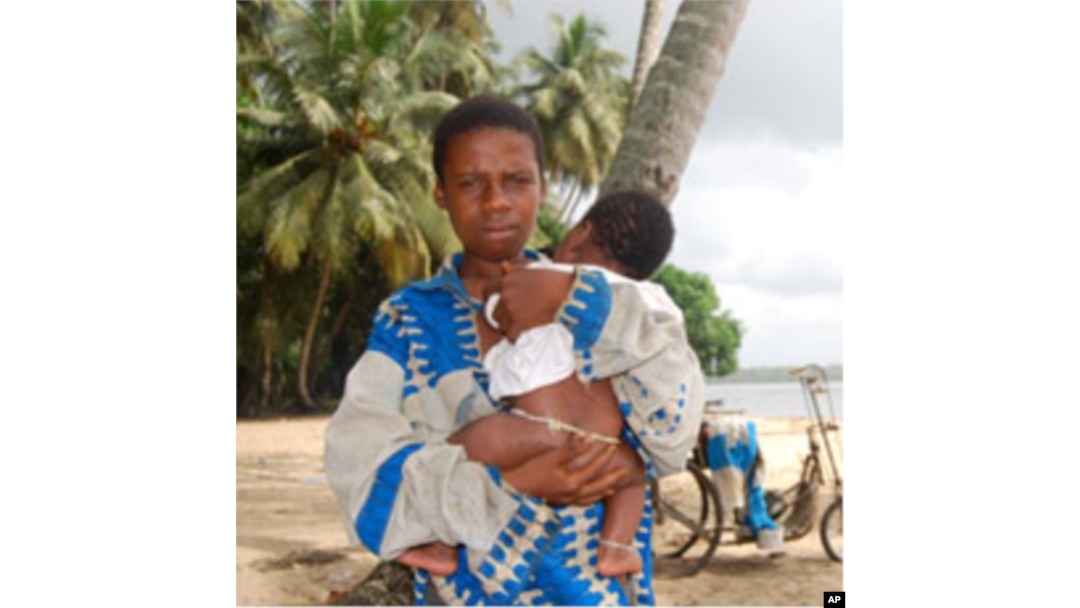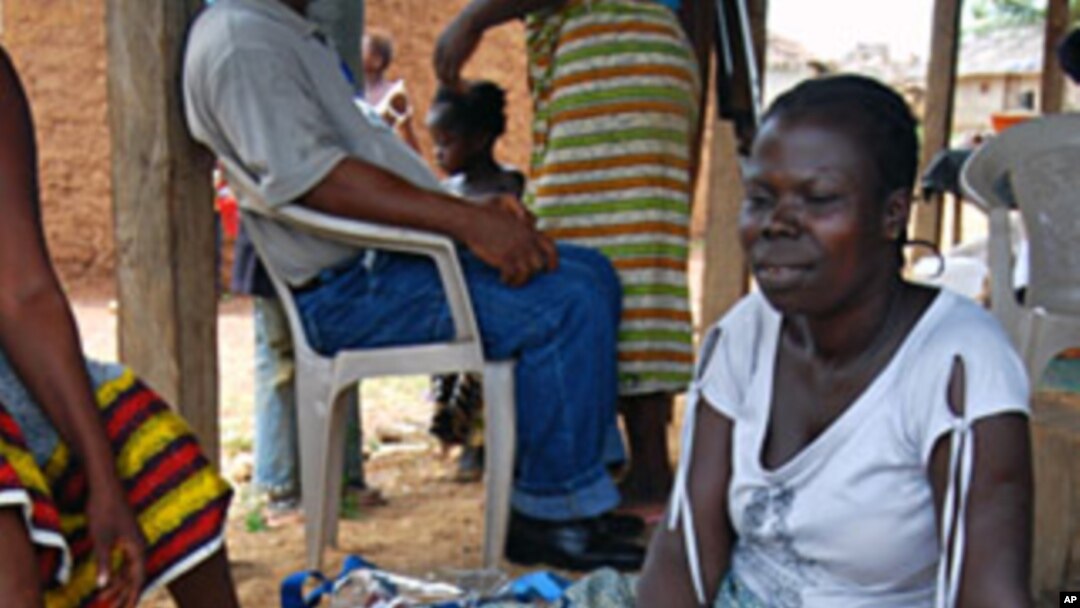Ivory Coast is still reeling from a post-electoral crisis that killed at least 3,000 people and displaced more than a million after former president Laurent Gbagbo refused to cede power to U.N.-certified winner of last November's election, Alassane Ouattara.
The Liberia office of the U.N. High Commissioner for Refugees says as many as 190,000 refugees from Ivory Coast fled to eastern Liberia, though registration and verification are still underway to obtain exact numbers.
The influx began late last year to Liberia's northeastern Nimba County where many refugees had familial and ethnic ties. It then shifted further south to Grand Gedeh and Maryland counties in April as fighters loyal to Ouattara swept through western Ivory Coast on their way to the commercial capital Abidjan.

An Ivorian boy holds his baby brother at the Koblakan river crossing in Liberia
More than 20,000 refugees arrived in Grand Gedeh county in a single week that month, overwhelming already struggling border communities like the small town of Tuzon, which had already taken in 1,500 Ivorian refugees just days after before Gbagbo was arrested in mid-April.
Cocoa farmer Maurice Beh and his family fled fighting near their home in western Ivory Coast in March, and like many they hid in the forest before crossing into Liberia.
Beh says since they arrived in Tuzon, food has been a problem. He says they have to get small day contracts to do odd jobs and be paid so they can buy rice for their families. He says they work in the forest or look for snails to sell in town. He says they don't have shelter and sleep where they can, even outside.
In recent weeks, the situation in communities like Tuzon has gotten even more desperate, and Liberia's internal affairs minister, Harrison Kanwea, has called for increased international aid.
"The situation is pathetic. It has overwhelmed the local communities," said Kanwea. "Right now, the host communities have depleted their supplies of food in their effort in helping their brothers and sisters that have come across from the other side."
UNHCR Liberia Representative, Ibrahmia Coly, said 85 percent of refugees are still in Liberian border communities and the agency has revised its strategy to provide assistance to all refugees, not just those in transit centers or camps further from the border, as it had previously planned.
However, he said reaching those communities can be a logistical nightmare, especially as the onset of rainy season makes the region's notoriously bad roads even more impassable.
An Ivorian mother sits in the shade with her children at the Koblakan river crossing in Liberia
"The fact that they scattered in villages, it's really difficult to get the assistance on time. The food distribution in Grand Gedeh for those who are in the host communities started last month and is still going on," Coly said. "It's not completed yet. In Maryland County, it's going to start in June. For those who came since early March up to now, it's a long time."
In Nimba County, the U.N. Food and Agriculture Organization has distributed seeds and tools to help communities meet the food needs of refugees, who have been able to pitch in and farm with their hosts. However, Coly said rural communities further south live primarily by hunting wild animals, not farming, and have had more trouble absorbing the refugees and their needs.
Grand Gedeh and Maryland Counties are now home to an estimated 85,000 refugees and Coly said between 60 and 200 refugees continue to cross over daily.
Many refugees in the two counties come from the Toulepleu and Tabou areas of western Ivory Coast, which saw some of the worst fighting during the conflict. Coly says the refugees are not eager to go home.
"These people may stay a bit longer here. The majority of them are pro-Gbagbo," said Coly. "Second, they are coming from areas where there was a lot of destruction. Some of their houses have been burned down. There was a lot of looting, and there is still at the moment insecurity in the area where they come from."
Ouattara's inauguration earlier this month may have marked a symbolic end to the crisis in Ivory Coast, but humanitarian workers, like Coly, say the situation for refugees and host communities in Liberia remains critical.


